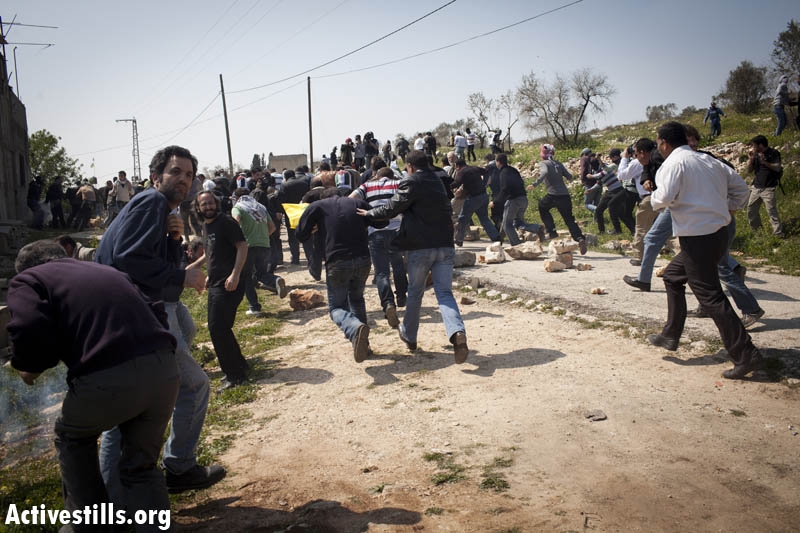Year: 2012
-
Amani al Khandaqja, defender of prisoner rights, becomes a prisoner herself
by Robin and Axel 21 March 2012 | International Solidarity Movement, West Bank Early Monday morning, on the 20th of March, Israeli soldiers raided a Palestinian home in the occupied West Bank city of Nablus, terrorized a family and arrested a young woman named Amani Al Khandaqja. The soldiers arrived at 2am, whilst the family…
-
This Occupation is brought to you by Corporate America
by Paige 23 March 2012 | International Solidarity Movement, West Bank During a recent demonstration in Hebron (Al Khalil) demanding the opening of Shuhada street, protesters were subjected to something that could only have been thought up in the United States – a weapon which comes with its own commercial. Amid the sound of concussion grenades exploding,…
-
Awaiting release and hearings of local activists, Kufr Qaddoum met with more Israeli violence
by Robin and Leila 23 March 2012 | International Solidarity Movement, West Bank It was under a bright, sunny sky that the people of Kufr Qaddoum once again gathered to protest against the roadblock which isolates them from the rest of the West Bank. The past week there had been much frustration and anger since Murad Ashtawi, member…


